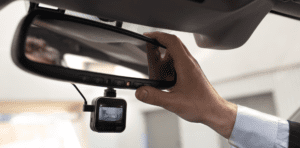Compare cheap car insurance
✔ Compare cheap car insurance quotes
✔ Over 110 insurance providers
✔ Get a quote in minutes
✔ Save up to £504*


As you approach your senior years, you might be curious about the legality of continuing to drive.
- Is there an upper age limit for driving in the UK?
- How do I renew my driving licence when I’m over 70?
- Do I have to declare any medical conditions when I renew my licence?
- How much will it cost to renew my licence?
- Do I need to go to the DVLA to renew my licence?
- Can I drive while my licence is being renewed?
- Tips for staying safe as an older driver
- When should I stop driving?
- What is an Experienced Driver Assessment (EDA) and who is it for?
- What does an EDA (Experienced Driver Assessment) involve?
- Are car insurance premiums higher for older drivers?
- How can I save money on car insurance if I’m over the age of 70?
- Frequently asked questions
Are there specific age limits for driving in the UK? Additionally, how can you ensure your safety as an older driver, and what should you anticipate regarding your car insurance premium? Let’s delve into these aspects.
Is there an upper age limit for driving in the UK?
No, there is no upper age limit for driving in the UK at the moment. This means that individuals can continue to drive well into their 70s, 80s, 90s, and beyond, as long as they meet certain criteria. To maintain your driving privileges, it’s essential to ensure that you don’t have any medical conditions that could impair your ability to drive safely and that you are not currently disqualified.
However, once you reach the age of 70, your driving licence will expire, and you will need to renew it if you wish to continue driving. From that point onwards, you will have to renew it every three years until you decide to stop driving altogether.
It’s worth noting that many senior drivers choose to keep driving beyond the age of 70. In fact, as of 2020, the DVLA reported that approximately 5.6 million older drivers aged 70 or above possessed a full driving licence in Great Britain.
Renewing your licence every three years after turning 70 is a part of the UK’s efforts to ensure road safety, especially considering potential age-related changes in health and cognitive abilities.
Regular licence renewal allows authorities to review a driver’s health and fitness to drive. This process aims to strike a balance between preserving independence for older drivers who can safely continue driving and ensuring road safety for all users.
As you continue driving in your golden years, safety should be a top priority. Consider getting regular health check-ups and eye exams to monitor your driving fitness. Maintaining good physical and mental health can help you stay confident and safe on the road.
Regarding car insurance premiums, it’s essential to review and compare policies from different providers, as rates can vary depending on factors like driving history, vehicle type, and cover needs. Some insurers may offer discounts or specialised policies for senior drivers with excellent track records and safe driving habits.
Remember, age alone does not determine your ability to drive safely. As long as you meet the necessary requirements and take appropriate precautions, there’s no reason why you can’t enjoy the freedom of driving well into your golden years.
How much can you save on your car insurance?
How do I renew my driving licence when I’m over 70?
When you’re approaching your 70th birthday, the DVLA (or the DVA in Northern Ireland) will send you a D46P application form, usually around three months before your birthday. The renewal process can be done through the postal service, or you have the option to apply online for added convenience.
For online applications, you’ll need to register on the GOV.UK service. During registration, you will require the following information:
- An active email address
- Details of your address history for the past three years
- Your national insurance number (if known)
- A valid UK passport number (in case you wish to update the photo).
If you prefer to renew your licence by post, the process will vary depending on whether you currently hold a paper licence or a photocard licence:
Paper Licence: If you have a paper licence, you’ll need to complete the application form and enclose a new passport-sized photo along with it.
Photocard Licence: If you already possess a photocard licence, you will need to submit the completed form along with the existing photocard. In some cases, you may be required to send a new passport photo as well. Make sure to carefully follow the provided instructions to ensure a smooth renewal process.
Renewing your driving licence every three years after turning 70 is a regulatory requirement aimed at promoting road safety. As we age, our health and cognitive abilities may change, and this process allows the authorities to review your fitness to drive regularly.


While it might seem like a bureaucratic step, it contributes to ensuring that all drivers, including senior citizens, can continue to drive safely and confidently.
Remember, this renewal process shouldn’t be a cause for concern. Many individuals continue to enjoy driving safely well beyond their 70s.
Keeping your driving skills sharp, maintaining regular health check-ups, and staying up-to-date with any changes in road rules are all key factors in staying safe and confident on the road.
How much can you save on your car insurance?
Do I have to declare any medical conditions when I renew my licence?
Yes, when you apply to renew your driving licence at the age of 70 and beyond, you will be required to complete a medical declaration.
This declaration involves providing details of any medical conditions you have that could potentially impact your ability to drive safely.
The primary goal of this requirement is to ensure road safety for both yourself and other road users. Some of the medical conditions that must be declared include, but are not limited to:
- Dementia
- Parkinson’s disease
- Epilepsy
- History of fainting episodes
- Diabetes (especially if you are using insulin)
- Sleep apnoea
- Certain heart conditions like atrial fibrillation or pacemakers
- Chronic neurological conditions such as multiple sclerosis
It is important to note that this list is not exhaustive, and you should consult the A-Z list of conditions on the official GOV.UK website for comprehensive information.
Your eyesight will also be evaluated to ensure it meets the required standards for driving. Adequate eyesight is crucial for safe driving, and you must confirm that you satisfy the driving eyesight rules during the licence renewal process.
When disclosing your medical information, honesty is essential. It is crucial to answer all questions about your health truthfully and accurately. Failing to declare a medical condition that is considered “notifiable” is a serious offence.
‘You could be fined up to £1,000 if you do not tell DVLA about a condition that might affect your ability to drive safely. You could also be prosecuted if you have an accident.’ – DVLA
Not only could it lead to legal consequences, but it could also pose significant risks to yourself and others on the road.
It’s important to understand that declaring a medical condition does not automatically disqualify you from driving. The DVLA (or the DVA in Northern Ireland) will review the information provided and assess your fitness to drive based on medical evidence.
In some cases, they may request further information from your doctor or specialist to make an informed decision.
If you are diagnosed with a medical condition that may affect your driving ability after renewing your licence, it is your legal responsibility to notify the DVLA promptly.
Regularly reviewing your health and seeking medical advice when necessary will help ensure you are fit to drive safely. Your safety and the safety of others on the road should always be the top priority.
How much can you save on your car insurance?
How much will it cost to renew my licence?
The good news is that drivers over the age of 70 can renew their licence at no cost.
The renewal process is free of charge for individuals in this age group, making it easier for senior drivers to continue enjoying the independence of driving without any additional financial burden.
So, if you’re 70 or older and need to renew your licence, you can do so without incurring any fees.
Do I need to go to the DVLA to renew my licence?
No, you do not need to visit the DVLA in person to renew your licence. The DVLA has closed its local offices and no longer provides in-person services. Instead, you have the convenience of renewing your licence by either post or online methods.
Opting to renew online is a straightforward process through the GOV.UK website, and you can usually expect to receive your new licence within just one week.
Embracing these digital options allows for a more efficient and streamlined renewal process, ensuring you can continue driving hassle-free.
How much can you save on your car insurance?
Can I drive while my licence is being renewed?
In certain circumstances, you are permitted to drive while your licence is in the process of being renewed. However, there are specific conditions that must be met to ensure your driving remains legal and safe:
Approval from your doctor: You must have received clearance from your doctor to continue driving. This typically applies to situations where there are medical concerns, and your doctor confirms that your health condition does not pose a risk while driving.
Possession of a valid licence: Before starting the renewal process, you should have held a valid driving licence. If your licence had already expired or was previously revoked, you should not be driving until the renewal is complete.
Adhering to previous licence conditions: While your licence is under renewal, you are only allowed to drive under the conditions specified in your previous licence. Any additional or new driving privileges granted after the renewal application would not be valid until the process is finalised.
Applying for renewal within one year: To be eligible for driving while the licence is being renewed, you must have applied for the renewal within the last year. It’s important to ensure that your application is timely, so your driving privileges remain valid during the renewal process.
However, there are instances when driving is not permitted during the renewal process:
Licence revoked or refused for medical reasons: If your licence was previously revoked or refused due to medical reasons, you are not allowed to drive until the DVLA has completed the renewal process and granted you a new licence.
Disqualification from driving: If you have been disqualified from driving for any reason, you cannot drive until the disqualification period has ended and your licence is officially reinstated.
During the renewal period, it’s crucial to closely adhere to these guidelines to avoid any legal complications and to prioritise the safety of yourself and other road users.


If there are any uncertainties or concerns about your eligibility to drive during this time, seeking advice from the DVLA or a qualified medical professional can provide clarity and ensure compliance with the regulations.
How much can you save on your car insurance?
Tips for Staying Safe as an Older Driver
You may have gained your driving experience in a different era, but that doesn’t mean you can’t be a safe driver today. As an older driver, it’s essential to be mindful of some additional safety considerations to ensure you remain confident and secure on the road.
Here are some valuable tips to help you stay safe as an older driver:
Regular eye tests: Schedule eye exams at least every two years, but don’t hesitate to visit an optometrist immediately if you notice any changes in your vision. Good eyesight is crucial for safe driving.
Check your hearing: Ensuring your hearing is in good shape is important, as impaired hearing may make it challenging to hear horns or sirens, compromising your ability to respond effectively.
Discuss health conditions with your GP: If you have any health conditions that you suspect might affect your driving ability or cause physical discomfort while driving, consult your GP for advice and guidance.
Plan journeys ahead: Before embarking on a trip, plan your route in advance and incorporate enough breaks to avoid fatigue during long journeys.
Stay updated with the Highway Code: Regularly review the Highway Code to keep yourself informed about recent changes and updates, which will help protect both you and other road users.
Be cautious with night driving: If you experience difficulties with your vision in low-light conditions or find night-time driving stressful, try to avoid driving at night whenever possible.
Avoid driving when tired: Refrain from driving during periods when you feel drowsy, such as late afternoons. Be cautious with new medications that might affect your alertness.
Minimise distractions: Silence your phone, avoid engaging in distracting conversations, and keep the music at a reasonable volume to focus fully on driving.
Be cautious in bad weather: If possible, avoid driving in challenging weather conditions, as they can increase the risk of accidents.
Choose less busy times: As a retiree, take advantage of your flexibility and avoid driving during rush hours or other peak traffic times.
Maintain confidence: Continue driving regularly to stay in practice and retain your confidence on the road.
Modify your car for comfort: If physical pain or stiffness hinders your driving, consider making adjustments to your car to enhance your comfort and driving experience.
Apply for a blue badge: If walking poses difficulties, consider applying for a blue badge to access accessible parking spaces, providing more convenience when you go out.
By following these tips and being proactive in addressing any potential challenges, you can enjoy the freedom of driving while prioritising your safety and the safety of others on the road.
Embracing a safety-conscious approach ensures that your driving experiences remain positive and fulfilling in your golden years.
How much can you save on your car insurance?
When should I stop driving?
Knowing when to consider retiring from driving is an important decision, and there are certain circumstances where you must stop driving immediately due to diagnosed conditions.


In other cases, it becomes a personal choice in consultation with your doctor. Here are some factors to consider:
Diagnosed medical conditions: If you are diagnosed with specific medical conditions that directly impact your ability to drive safely, it is crucial to cease driving right away. These conditions may include sudden onset seizures, certain neurological disorders, or other health conditions that significantly impair driving capabilities.
Slowing reactions: As we age, our reaction times may naturally slow down. If you find that your reaction times are becoming noticeably slower, it might be a sign that it’s time to consider alternative transportation options for your safety and the safety of others on the road.
Degenerating eyesight: If your eyesight is deteriorating to the point where it compromises your ability to see road signs, pedestrians, or other vehicles, it is essential to seriously contemplate giving up driving.
Increasing stress while driving: Feeling increasingly stressed or anxious while driving, especially in challenging traffic conditions, can indicate that driving is becoming more challenging and may no longer be suitable for you.
Deciding to retire from driving is a significant life transition, and it’s normal for it to be an emotional decision. It’s essential to be prepared for this change and to plan accordingly.
If you sense that the time to stop driving is approaching, consider discussing your concerns with your family and friends. Their support and understanding can be valuable during this process.
Exploring alternative transportation arrangements in advance can also help ease the transition.
Options like public transportation, ride-sharing services, community transport programs, or family support can provide you with the independence you need while ensuring your safety and the safety of others on the road.
Remember, this decision is a personal one, and there’s no one-size-fits-all answer. Engaging in open conversations with your loved ones, considering your health and comfort, and staying informed about transportation alternatives will help you make the best decision for your unique circumstances.
Prioritising safety and seeking support when needed ensures that you maintain a fulfilling and enjoyable lifestyle as you adapt to life beyond driving.
How much can you save on your car insurance?
What is an Experienced Driver Assessment (EDA) and who is it for?
If you or your loved ones have any concerns about your continued ability to drive safely, or if you simply wish to validate your driving skills, you might consider taking an Experienced Driver Assessment (EDA).
EDAs are specifically designed for drivers aged 65 and above, aiming to enhance driving skills and confidence while identifying areas that can be improved to make you a safer driver.
These assessments are provided by various organisations, including charities like the Royal Society for the Prevention of Accidents (RoSPA) and IAM RoadSmart, as well as local authorities. Typically, there is a small fee associated with these assessments.
There are two main types of EDAs available:
In-Depth assessments: This type of assessment is tailored for individuals with medical conditions or disabilities that may have an impact on their driving abilities. The assessment is conducted by the Driving Mobility Organisation, with a focus on evaluating whether drivers can continue to drive safely with their specific health conditions.
Standard refresher courses: These courses are designed to support older drivers in improving their driving skills and building confidence on the road. The aim is to address any concerns and refresh driving knowledge, ensuring that older drivers remain safe and competent road users.
Participating in an EDA can offer numerous benefits, even if there are no specific concerns about your driving ability.
It provides an opportunity to fine-tune your driving skills, stay updated with current road rules and regulations, and receive constructive feedback from trained assessors. By voluntarily taking an EDA, you demonstrate a proactive approach to road safety and responsible driving.
It’s essential to remember that an EDA is not a pass/fail test, and the results do not impact your driving licence. Instead, the focus is on continuous improvement and fostering safer driving habits.
The assessors are there to support you throughout the process, providing helpful guidance and tips to enhance your driving capabilities.
Maintaining your driving skills is vital to stay safe on the road, especially as we age. Participating in an EDA can contribute to road safety and ensure that you can confidently continue driving for as long as it is safe and appropriate.
If you are considering an EDA, reach out to reputable organisations offering these assessments to benefit from the valuable insights they can provide.
How much can you save on your car insurance?
What does an EDA (Experienced Driver Assessment) involve?
If you opt for a standard EDA, an experienced assessor will typically accompany you for approximately an hour-long drive, using your own car, on roads familiar to you near your home.
Importantly, an EDA is not a pass or fail test; it’s a relaxed and confidential evaluation designed to provide peace of mind. The purpose is to assess your driving skills, identify areas for improvement, and offer advice on potential further training to enhance your driving abilities.
At the conclusion of the assessment, you’ll receive a comprehensive report detailing your performance during the drive, along with personalised guidance to help you enhance your driving capabilities.
This approach emphasises continuous improvement and supports you in maintaining safe and confident driving habits.
In cases where you, the DVLA, or your GP deem it necessary, a Driving Mobility assessment may be required. In this type of assessment, a specially trained instructor will evaluate your driving abilities while considering your medical condition, disability, or physical impairment.


These assessments are conducted in vehicles equipped with dual controls to ensure maximum safety during the evaluation.
During the Driving Mobility assessment, the instructor will assess how your medical condition or physical limitations impact your driving, with the primary goal of determining whether it is safe for you to continue driving.
Their evaluation takes into account various factors, such as reaction times, decision-making abilities, and vehicle control.
Based on the results of the assessment, the instructor may offer recommendations for any necessary car adaptations to ensure you can drive safely and comfortably.
Car adaptations can include modifications to vehicle controls, seating arrangements, or additional support devices, depending on individual needs.
It’s important to approach both types of assessments with an open mind and a willingness to receive constructive feedback. These evaluations are not meant to discourage driving but to ensure your safety and the safety of others on the road.
Participating in an EDA or Driving Mobility assessment can provide valuable insights into your driving skills and contribute to an ongoing commitment to safe driving practices.
Embracing opportunities for improvement and seeking further training, if needed, will help you maintain confidence and independence while on the road.
How much can you save on your car insurance?
For drivers aged 70 and above, it’s possible to encounter higher insurance premiums compared to those in their 60s. However, generally, older drivers tend to face lower insurance costs when compared to younger drivers.
Insurance providers often consider older drivers to be more experienced and less likely to engage in risky driving behaviours, which can result in more affordable premiums.
The premium variations for older drivers are influenced by a range of factors, including the individual’s driving history, claims record, the type of vehicle insured, and the insurer’s specific pricing policies.
While some insurers may increase premiums slightly for drivers over 70 due to age-related considerations, these increases are typically more modest than those imposed on younger, less experienced drivers.


It’s essential for older drivers to explore different insurance options and compare car insurance quotes from various providers to find the most suitable and cost-effective cover for their needs. Some insurers may offer specialised policies or discounts tailored to the needs of senior drivers with a proven track record of safe driving.
Regardless of age, maintaining a clean driving record, adhering to road safety rules, and choosing a vehicle with appropriate safety features can all contribute to keeping insurance premiums at reasonable levels.
Taking proactive steps to demonstrate responsible driving habits can help older drivers secure favourable insurance rates while enjoying the independence and benefits of having reliable auto insurance cover.
How much can you save on your car insurance?
How can I save money on car insurance if I’m over the age of 70?
The key to saving money on car insurance is to be proactive and compare different options. At Comparoo, we can assist you in gathering quotes from a diverse selection of car insurance providers in the UK.
Why not take advantage of this service and give it a try? It could be the simplest and most efficient way to explore potential savings on your car insurance cover.
By comparing quotes from over 110 of the UK’s most trusted car insurance providers, you can make an informed decision and potentially find a policy that offers the right level of cover at a more budget-friendly premium.
Don’t hesitate to explore your options and seek out potential savings—it can make a significant difference in your overall insurance costs.
Frequently asked questions
Yes! You can start the process of renewing your driving licence up to three months before your 70th birthday. However, please note that you cannot initiate the renewal any earlier than that.
So, once you are within the three-month window of your 70th birthday, you are free to get the ball rolling and ensure a smooth renewal process for your driving licence.
If you haven’t received the D46P application form from the DVLA, there are alternative options available for renewing your driving licence. One option is to visit the post office and get a D1 form, which can serve as a substitute for the D46P form.
Alternatively, you can order the D1 form online through the official GOV.UK website. This allows you to conveniently access the form from the comfort of your home.
An even more streamlined approach is to apply for the renewal of your driving licence directly online through the GOV.UK website. By opting for the online application process, you can bypass the need for a paper form altogether, making the renewal process quicker and more efficient.
Choose the method that suits you best, and ensure that your driving licence renewal is processed promptly to avoid any interruptions in your driving privileges.
Based on data from the Department for Transport in 2020, there is evidence to suggest that the rate of collisions per miles travelled does increase for car drivers over the age of 75. However, it’s important to consider the broader picture.
Interestingly, drivers in the 71-75 age group exhibit the lowest rate of collisions per miles travelled. For every billion miles driven, drivers aged 71-75 were involved in 211 collisions. In stark contrast, the rate was significantly higher for younger drivers aged 17-24, with 1,384 collisions per billion miles travelled.
Between the ages of 75 and 86, the rate of collisions does start to increase gradually, eventually surpassing the rate for the youngest drivers when it comes to drivers aged 86 and above.
It’s important to avoid making broad generalisations about older drivers based solely on age. While there is a slight increase in the rate of collisions for some older age groups, it is still lower than the collision rates seen in younger drivers.
Furthermore, factors such as experience, health conditions, and driving habits play significant roles in driving safety for individuals of all age groups.
Addressing road safety should be a collective effort, focusing on providing appropriate training, promoting safe driving practices, and encouraging regular health assessments for all drivers, regardless of age.
By understanding the nuances of road safety and avoiding age-based stereotypes, we can work together to ensure safer roads for everyone.
Typically, there is no mandatory medical examination required when renewing your driving licence at 70. However, if you have any medical conditions that are considered “notifiable” – conditions that may affect your ability to drive safely – you may need to get a medical report from your GP to demonstrate that you can still drive safely.
It’s essential to prioritise your health and safety. If you have any health concerns whatsoever, it is advisable to consult with your doctor. They are in the best position to assess your fitness to drive and provide professional advice tailored to your specific medical situation.
Keep in mind that you have a legal obligation to inform the DVLA of any medical conditions that could potentially impact your driving abilities. Being honest and transparent about your health conditions helps ensure that your driving privileges are in line with your physical capabilities and promotes road safety for yourself and other road users.
By proactively addressing any health concerns and complying with legal requirements, you can enjoy continued safe driving while adhering to responsible driving practices. Your well-being and the safety of others on the road are of utmost importance, and staying informed about your fitness to drive ensures that you can confidently navigate the roads.
When renewing your driving licence, you will be required to affirm that you meet the eyesight standards necessary for safe driving. While there is no specific eye test mandated solely for licence renewal at 70, it is highly recommended to have your eyes tested regularly.
Having your eyes tested every two years is a good practice, and the renewal period serves as a timely reminder for this essential health check. Regular eye examinations can detect any changes in your vision and help ensure that you meet the necessary eyesight regulations for driving safely.
Keeping up with your eye health is crucial, as good eyesight is fundamental to safe driving. Clear vision enables you to read road signs, spot hazards, and react swiftly to changing road conditions. By adhering to regular eye tests, you can maintain your driving abilities and ensure the safety of yourself and others on the road.
So, when you approach the licence renewal process at 70, consider it as an opportune moment to have your eyes tested, ensuring that you are in optimal condition to continue driving safely and confidently. Remember, being proactive about your eye health is an essential aspect of maintaining responsible and secure driving habits.
In most cases, no, you won’t need to retake your driving test when you turn 70 to renew your licence. However, if you have a medical condition that could potentially impact your ability to drive safely, the DVLA might request you to undergo an assessment.
This assessment is typically conducted at a local Mobility Centre or through your local authority to evaluate your fitness for driving.
The primary purpose of this assessment is to ensure that your medical condition does not compromise your driving capabilities and that you can safely operate a vehicle on the road. It is not a driving test in the traditional sense, but rather an evaluation of how your medical condition may affect your driving skills.
If the DVLA determines that you meet the necessary requirements and are fit to drive, you can continue renewing your driving licence without the need for a full driving test.
However, it’s important to remain vigilant about your health and inform the DVLA of any changes in your medical condition that may impact your ability to drive safely.
By being proactive and complying with any medical assessments or requirements, you can help ensure that your driving privileges remain in line with your capabilities, promoting road safety for yourself and others.
No, there is no upper age limit for learning to drive in the UK. As long as you are over the age of 17 (or 16 in some cases), you are eligible to start the process of learning to drive. Age does not restrict your ability to obtain a learner’s permit or take driving lessons.
If you choose to pursue a driving licence in your 70s or beyond, you are entirely welcome to do so. There are no age barriers preventing you from taking both the theory test and the practical driving test. The same rules and requirements apply to older learners as they do to younger individuals.
It’s worth noting that if you successfully pass your driving test and obtain your driving licence in your 70s, you will need to renew it every three years. This renewal process ensures that your driving abilities are continually reassessed to ensure your safety and the safety of others on the road.
Learning to drive as an older adult can be an empowering and rewarding experience. Whether you’re seeking increased independence, wish to explore new opportunities, or simply want to gain the skill of driving, age should not hinder you from embarking on this journey.
For further guidance and support, you can refer to our comprehensive guide on learning to drive as an older driver, which provides valuable insights and tips for making the most of this new chapter in your life.
No, there is no specific age limit for driving a motorhome in the UK. Similar to regular car driving, there is no upper age limit for motorhome driving either. As long as you hold a valid UK driving licence that permits you to drive a motorhome, you are allowed to do so, and there is no arbitrary age restriction.
However, it’s important to be aware of the driving licence requirements for specific motorhomes. If you intend to drive a motorhome with a Maximum Authorised Mass (MAM) exceeding 7.5 tonnes, you will need a C-class driving licence. For motorhomes with a MAM between 3.5 and 7.5 tonnes, a C1-class driving licence is required.
If you continue driving a motorhome beyond the age of 70, it’s essential to consider your health and driving capabilities. You, along with advice from your doctor, should assess whether it is safe and appropriate for you to continue operating a motorhome.
During the licence renewal process at 70, ensure that you apply to renew all the relevant vehicle classes you wish to continue driving, including any categories applicable to motorhomes.
Remember, age itself is not a determining factor when it comes to driving a motorhome. What truly matters is your driving competence, adherence to licensing requirements, and, most importantly, your ability to drive safely for both yourself and others on the road.
Technically, there is no specific maximum age limit for getting an HGV licence in the UK. However, there are certain requirements and renewals that come into play as drivers age.
Once you reach the age of 65, you will need to renew your HGV driving licence annually. Before reaching 65, the renewal period is every five years. Additionally, from the age of 45, you must submit a medical examination report along with your licence renewal application.
This report must be completed by your doctor, and you may also require an optician or optometrist to assess your vision and complete the relevant section of the report. Please note that there may be charges for these medical services.
Furthermore, to maintain your Driver Certificate of Professional Competence (CPC) for driving an HGV, you must complete 35 hours of periodic training every five years. This requirement applies regardless of your age and is essential for ensuring ongoing competence and safety as a professional driver of lorries, buses, or coaches.
While there is no age limit for driving an HGV, the licensing process does become more stringent as you age, with more frequent medical checks and a shorter renewal cycle beyond 65.
Staying current with these requirements and undergoing periodic training ensures that you remain compliant with the necessary regulations and maintain the necessary skills to operate an HGV safely and responsibly, regardless of your age.
In the UK, there is no legal upper age limit for car rentals. However, some car rental companies may impose their own maximum age limit for renting a car. These age limits set by rental companies typically vary and can range from 69 to 99 years old.
While many car rental companies in the UK and Europe are open to renting to drivers in their 70s and 80s, they might apply a “senior driver” surcharge to individuals beyond a certain age threshold. This surcharge is an additional fee that drivers over the specified age may be required to pay to rent a car.
It’s essential to check with individual car rental companies to understand their specific age-related policies and any potential additional charges that may apply based on age. By doing so, you can make informed decisions about car rentals and find options that best suit your needs and budget, regardless of your age.











